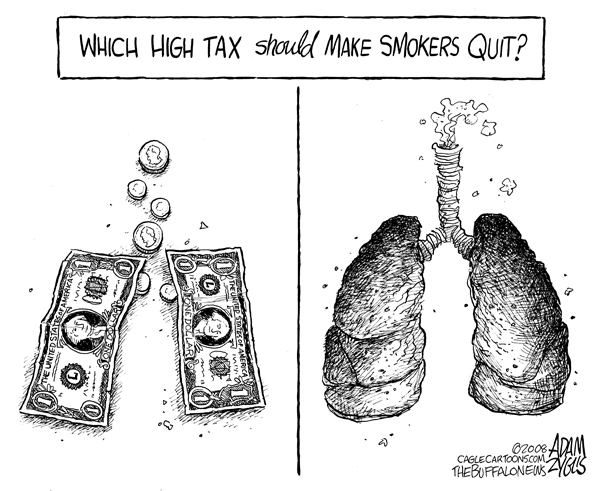Survey results over the past decade have indicated that the “use of electronic cigarettes by American teenagers continues to rise, even as their use of conventional cigarettes continues to fall”. At the same time, critics of electronic cigarettes have called for greater regulation of the e-cigs industry to address this trend and supplement current anti-tobacco consumption efforts. However, these opponents fail to realize that there is no evidence that demonstrates e-cigs are a “gateway to smoking”. In fact, a recent review in the journal Addiction, found that the “Regular use of [e-cigarettes] by non-smokers is rare, and no migration from [e-cigarettes] to smoking has been documented.” This evidence supports the statements that “lighter” drugs tend to rarely lead to the use of harder drugs, and in the case of e-cigs; they hardly lead to increased cigarette use.
In regards to e-cigarettes, the “National
Youth Tobacco Survey (NYTS), sponsored
by the U.S. Centers for Disease Control and Prevention (CDC), last year put…past-month
e-cigarette use among all high school students at 4.5 percent.” More
so, “daily smoking is
also less common than ever before. “6.7 percent of high school seniors reported
daily smoking use, down from 26.9 percent in 1975, when the study started, and
12.3 percent in 2007, when e-cigarettes were first marketed in the United
States.”
 Furthermore, e-cigs help teenagers and young smokers
quit as they are able to smoke e-cigs rather than the normal and more deadly
types of cigarettes. According to a study from Monitoring the Future, “Among the 12th-graders who…smoked a cigarette…17.5
percent…used only cigarettes in the previous month, 16.7 percent…used only
e-cigarettes, 21.5 percent…used both, and 44.3 percent…used neither.”
Indeed, this demonstrates that although e-cig use is rising, they’re helping
teenagers reduce cigarette consumption and ultimately negate the harmful
effects of smoking.
Furthermore, e-cigs help teenagers and young smokers
quit as they are able to smoke e-cigs rather than the normal and more deadly
types of cigarettes. According to a study from Monitoring the Future, “Among the 12th-graders who…smoked a cigarette…17.5
percent…used only cigarettes in the previous month, 16.7 percent…used only
e-cigarettes, 21.5 percent…used both, and 44.3 percent…used neither.”
Indeed, this demonstrates that although e-cig use is rising, they’re helping
teenagers reduce cigarette consumption and ultimately negate the harmful
effects of smoking.  Beyond the scientific evidence
behind e-cigs, we need to morally oppose any government infringement upon an
individual’s rights to determine what goes into their body. If individuals
decide to consume e-cigs or cigarettes, then they have made the decision for
themselves.
Beyond the scientific evidence
behind e-cigs, we need to morally oppose any government infringement upon an
individual’s rights to determine what goes into their body. If individuals
decide to consume e-cigs or cigarettes, then they have made the decision for
themselves.
Additionally, if e-cig and
cigarette use negatively impacts the health of others, then those victims can
rightfully sue the cigarette smokers for purposely violating their individual
rights. That solution would certainly create long term declines in smoking rather
than foolish government smoking regulations that would serve only to drive
cigarette sales and use underground and encourage the use of harder drugs.


















